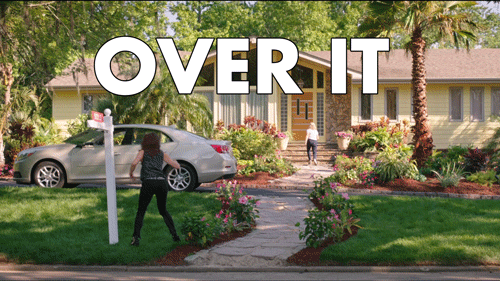Just by looking at my LinkedIn feed, it is superabundantly clear that the “Great Resignation” has hit the South African shores. Every second post is “I am thrilled to announce I have started a new position at…” or LinkedIn prompts me to congratulate someone for their new position. Pre-covid it was “congratulate this person” for their “workaversary”. Times have changed; people have re-evaluated what they want in life; and companies or leadership that are too traditional, toxic, or conservative are losing talent faster than Eskom is losing power.
People are not willing to tolerate bullying, being overworked, and underappreciated in the workplace and thus are looking to companies that are flexible, genuinely care (not the “we care” nonsense but are toxic as f) and excuse my language “asshole-ish”. The “Great Resignation” is happening even though people are being retrenched, unemployment rates are higher than ever, and job security is a serious issue in the country.
Here are some of my very biased introverted thoughts on the “Great Resignation”, red flags, the interview process, starting a new job and a bonus section of things people are “gatvol” of. And I must admit they are also thoughts gathered from several other introverts who I won’t expose.
Tables Have Turned – Finally!

I don’t know if it is a South African thing or what. But since forever and a day it has been drilled into our heads “you should be grateful to have a job”. Although this is true, and I don’t mean to sound insensitive and that gratitude isn’t a good thing, but I do think companies have used this mentality to bully their employees, especially during covid times.
“You should be grateful to have a job”, “you should be grateful we pay you a full salary”, “you should be grateful even if we can’t give you an increase” – like the employees don’t work super hard, work extra hours without compensation (taking a great toll on their physical and mental health) or have serious reason to be concerned about inflation and not making ends meet.
Anyway, tables have finally turned with the “Great Resignation”. Many positions have become available. Mighty employers that have done whatever they wanted to for years are already seeing a great loss as talented and hardworking employees wave ta-ta (and use other hand gestures) as they join flexible employers, do their own thing or look to overseas places for employment. The point is that it is high time that the tables turn and that employers start to become grateful they have loyal employees and do something to reward them. Guilt trips are so pre-covid employers.
Red Flags for Job Seekers

Now with so many people moving jobs, it’s time to be careful not to switch from one toxic situation to the next. A few things to watch out for – companies that insist on on-site working instead of hybrid or flexible models (especially if competitors have no problem with hybrid models); this only applies if you prefer flexibility.
Other things – “willing to work long hours”, “dynamic person in a fast-paced environment”, “willing to go beyond their job description”, millions of responsibilities listed in the job specs and only demands expected of the perfect candidate but no tangibles on how the company can support you. The same position in a company being advertised every few months, or multiple positions at the same company and department a few weeks apart are also red flags.
A perfect company where everyone sings “kumbaya” together is also a red flag by the way and for some reason so is “we are a family type business”. Run to the koppies.
The latest trend of forward-thinking companies is to include salary expectations. We all know why companies don’t want to do it, but it just saves everyone a lot of time and admin if a company is transparent from the start. This is a white flag rather than a red flag.
Red Flags at Interview Level

Red flags don’t always flap around in the job description or ads but in the interviews. Are the people who are interviewing you on time? How do they respond to questions you ask (can you see irritation or defensiveness)? In the covid era, do they ask if you are comfortable removing your mask or demand you to? How do they speak to others? Does the environment feel relaxed? Or tense?
Remember an interview works both ways – so ask some interesting questions. “Why did this position become vacant”, “Could you please describe the company culture?”, “What is the organisational structure?”, “What is the biggest challenge your organisation or industry is facing?” – then listen intently to how the questions are answered, what is being left out and if there is a sense of irritation when you ask questions. Also, listen if the interviewer uses a lot of “me’s” instead of “we’s”.
If you don’t get hired because you asked straightforward questions, then you dodged a machete. With that said, I understand not everyone has the luxury to turn down jobs (this is a blog on its own). But if you have a job, take your time, listen, observe, and ask.
Interview Process

Being an introvert and someone who likes to give authentic answers when people ask me questions, I find the interview process particularly difficult (as do all my introverted friends). I firstly forget everything I have ever learnt, and all the answers I prepared in my head beforehand go to the place where I store my passwords (in the abyss).
After the interview, I feel like cow dung. Then all the answers come to me. All the things, I should’ve highlighted or spoken of and of course, I think of all the things, I shouldn’t have said. And then, it hit me like a flying fridge to the face. The interview process isn’t great for introverts at all. It’s literally putting you in the worst-case scenario (speaking to strangers, about yourself in a confident manner and asking you to flourish – AS IF).
The interview process is great for anyone that can talk a good game, throw a lot of jargon and numbers around, bs the interviewer – a good salesperson essentially (askies sales). And often it means terribly incapable people are hired. Not that I have an alternative to the classic interview – I just feel that it’s an extremely traumatic experience even when the interviewers are uber nice and fair.
Stress of a New Job

Starting a new job can be exciting. But it can also be extremely daunting. Learning new systems, nuances, unspoken rules that you transgress, feeling like a subject matter moron if you change sectors and the hunger to prove your worth etc. … all makes changing jobs stressful. Freaking stressful, to the bone, pressed down, toppled over, inside-out stressful. But all you can do is persevere, pray that the company is patient with you (and give them timelines and feedback on what you need to succeed), work hard, research harder and be kind (it helps to have allies). But once you reach the sweet spot (that experts claim takes about four to six months – I know EINA – such a long time to be uncomfortable) and you are the right company, it’s so worth it.
The South African Employee Gatvol Section (Bonus)

- Micro-management – employees don’t need a lap to sit on to work.
- Poor justification for onsite working – the people who slack at work-from-home situations, slack at work (they just make themselves look productive).
- The manipulative gratitude card – we are South Africans – we know our history and our reality and that we have a lot to be grateful for. But don’t let employees feel guilty about receiving their salaries (they earned it through hard work). Don’t dangle the gratitude card.
- Lack of transparency on salary expectations – just put the pay range up companies; you may have a lot less candidates, but you are saving everyone time.
- Treating employees like 💩 – treat your employees like 💩 and you will bear the fruit of the Great Resignation.
- Poor leadership – take a course, see a therapist, listen to podcasts, attend conferences, get 360-evaluations and work on yourself leaders. There are way too many bosses and not enough leaders. Employees are gatvol of enduring your presence by the grace of Urbanol, therapy, or enter whatever coping mechanism.
![The Great Resignation, Interviews, Red Flags and More [Thoughts of an Introvert]](https://sparkleellie.com/wp-content/uploads/2022/02/The-Great-Resignation-Interviews-Red-Flags-and-More-Thoughts-of-an-Introvert.jpg)
Oh this was just a great read! I found it so refreshing that l am not the only one who has a different take on companies and the whole interview thing. That’s probably why l am a entrepreneur and my own “boss”😁
Especially the whole polished, prepped interview with a lot of “where do you see yourself in 5yrs🙄and what is your greatest weakness (l mean, are you really gonna tell them? No, you are going to give them a prepped bs answer.)
Time to ditch the pretentiousness!
And then also the whole story about salaries being discussed at the interview. They really lose my interest right there..why would you go to an interview and not have at least a rough estimate of earning potential. Total waste of time.
Looking forward to your next blog!